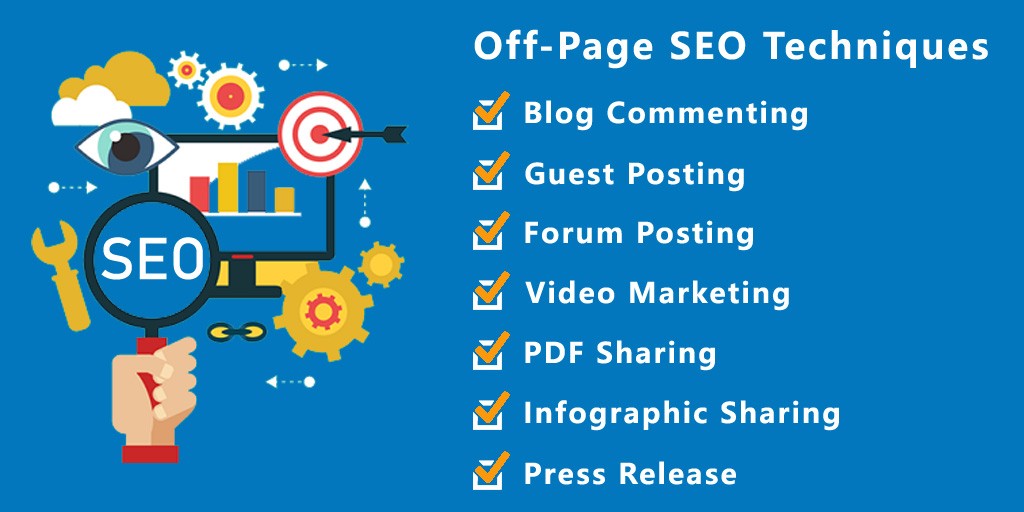- support@microwebsolutions.co
- Kanpur U.P-208021
On Page SEO

On-page SEO refers to the optimization techniques and practices implemented on individual web pages to improve their search engine rankings and visibility. It involves optimizing various elements within a webpage to make it more relevant and attractive to search engines, ultimately increasing organic traffic and improving the overall user experience. Here are some key aspects of on-page SEO:
-
Keyword Optimization: Research and use relevant keywords that are commonly searched by your target audience. Incorporate them strategically in the page's title, headings, meta tags, URL, and throughout the content.
-
Content Quality: Create high-quality, informative, and engaging content that aligns with the search intent of users. Use proper formatting, headings, subheadings, and bullet points to enhance readability. Longer, comprehensive content tends to perform better in search results.
-
Meta Tags: Optimize the meta title and meta description tags for each page. Keep them concise, compelling, and keyword-rich, as these elements appear in search engine results and impact click-through rates.
-
URL Structure: Use descriptive and keyword-rich URLs that are easy for both search engines and users to understand. Avoid long, convoluted URLs and include relevant keywords in them.
-
Header Tags: Utilize header tags (H1, H2, H3, etc.) to structure your content and signal its hierarchy to search engines. Include your primary keywords in the relevant headers to highlight the page's main topics.
-
Image Optimization: Optimize images by reducing file sizes for faster loading times and adding relevant alt text, captions, and descriptive file names. This helps search engines understand the content of the images and improves accessibility.
-
Internal Linking: Link relevant pages within your website to provide a clear site structure and help search engines discover and index your content. Internal links also help users navigate your site and improve the user experience.
-
Mobile-Friendliness: Ensure that your web pages are mobile-friendly and responsive, as search engines prioritize mobile-friendly websites. Test your pages using mobile-friendly testing tools and optimize them accordingly.
-
Page Speed: Optimize your webpage's loading speed by minimizing code, compressing images, utilizing browser caching, and using a content delivery network (CDN). Faster loading times enhance the user experience and can positively impact search rankings.
-
User Experience: Aim to provide a seamless user experience by optimizing your website's design, navigation, and overall usability. Easy navigation, clear calls to action, and fast-loading pages contribute to improved user engagement and search rankings.
Remember that on-page SEO is just one part of the broader SEO strategy, which also includes off-page SEO factors like backlink building and social signals. Balancing both on-page and off-page optimization is crucial for achieving optimal search engine rankings and attracting organic traffic to your website.
Frequently Asked Question
Sure! I can help answer frequently asked questions. Please go ahead and ask your question, and I'll do my best to provide you with a helpful response.
-
What is digital marketing?Digital marketing refers to the use of various digital channels and strategies to promote products, services, or brands online. It encompasses activities such as search engine optimization (SEO), social media marketing, content marketing, email marketing, and paid advertising, among others.
-
Why is digital marketing important?Digital marketing is essential because it allows businesses to reach a wider audience, target specific demographics, measure and track results, and interact with customers in real time. It offers cost-effective marketing solutions and provides opportunities for businesses to enhance their online visibility and brand reputation.
-
What are the key components of a digital marketing strategy?A digital marketing strategy typically includes:
Defining goals and objectives.
Identifying the target audience.
Conducting market research and competitor analysis.
Selecting the appropriate digital marketing channels.
Developing compelling content and creative assets.
Implementing campaigns and tactics.
Analyzing and measuring results.
Making data-driven adjustments and optimizations. -
How can I improve my website's search engine ranking?To improve your website's search engine ranking, consider the following:
Conduct keyword research and optimize your website's content with relevant keywords.
Ensure your website has a user-friendly design and good site structure.
Optimize meta tags, titles, and descriptions.
Build high-quality backlinks from reputable websites.
Create and publish fresh, engaging, and shareable content regularly.
Improve page load speed and mobile-friendliness.
Use alt tags for images and optimize multimedia elements.
Encourage social sharing and engagement.
-
What is social media marketing, and how can it benefit my business?Social media marketing involves using social media platforms like Facebook, Instagram, Twitter, LinkedIn, and others to promote products, services, or brands. It can benefit your business by:
Increasing brand awareness and exposure.
Building and nurturing a community of loyal followers.
Driving website traffic and generating leads.
Engaging directly with customers and receiving feedback.
Enhancing brand reputation and credibility.
Facilitating targeted advertising to reach specific demographics.
Conducting market research and gathering insights.
-
How can I measure the success of my digital marketing efforts?You can measure the success of your digital marketing efforts by tracking key performance indicators (KPIs) that align with your goals. Some common KPIs include:
Website traffic and page views.
Conversion rates and sales.
Click-through rates (CTRs) for ads and emails.
Social media engagement metrics (likes, shares, comments).
Return on investment (ROI) from advertising campaigns.
Customer acquisition cost (CAC) and customer lifetime value (CLV).
Email open and click rates.
Search engine ranking and organic search traffic.
-
What are some effective email marketing strategies?To enhance your email marketing efforts, consider the following strategies:
Personalize your emails based on recipient data and preferences.
Segment your email list to send targeted messages.
Craft compelling subject lines to improve open rates.
Provide valuable content and offers to engage subscribers.
Use clear and visually appealing email designs.
Optimize for mobile devices.
Test different email variations and analyze performance.
Automate email sequences for lead nurturing and customer onboarding.


